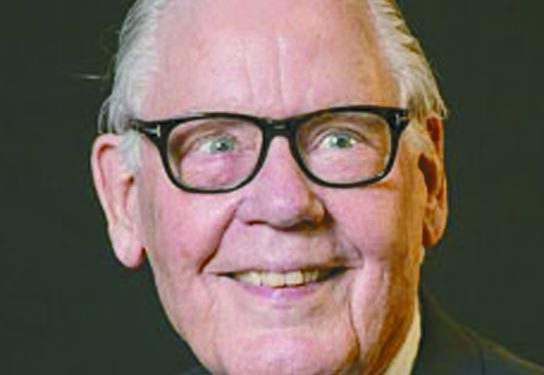You’ve heard the old saying that things are going to the dogs. After talking to Jennifer Arnold, we should be so lucky. Ms. Arnold is founder and executive director of Canine Assistants, a nonprofit organization which provides service dogs to adults and children with physical disabilities and other special needs.
It was suggested I talk to her by Mike McConnell, a loyal reader in Gainesville (do I have any other kind?) after he had seen my mention of Murphy, the family therapy dog in my recent Thanksgiving column. Mr. McConnell’s daughter-in-law is a volunteer with Canine Assistants.
Ms. Arnold’s founding of Canine Assistants is up-close-and-personal. As a teenager, she was diagnosed with multiple sclerosis and confined to a wheelchair. Her father, a physician, heard of an organization in California that trained service dogs to help people in wheelchairs, but the program had a very long waiting list and worked mainly with those on the West Coast.
Her father decided to start a similar program in Georgia. Three weeks after the first planning meeting he was hit and killed by a drunk driver while out for a walk. It took Ms. Arnold and her mother 10 years to get the program going in 1991. And 32 years later, the Alpharetta-based organization is going strong.
Canine Assistants first placed dogs from animal shelters, but later started their own breeding program. Now all of the dogs are born, raised and taught at Canine Assistants. Since 1991, over 3,000 dogs have been placed with those needing assistance. The organization averages between 50-75 dog placements a year. The most common breeds are golden retrievers, labradors and standard poodles.
The needs can range from those with mobility difficulties, Type 1 Diabetes, epilepsy/seizure disorders to other special issues. Canine Assistants is also the leading provider of facility dogs in pediatric hospitals where the dogs work full time with hospital staff to provide assistance in dealing with young patients.
“It takes 18 months to two years to have a dog ready for placement,” Ms. Arnold says, “and it is rigorous process for the dog and the trainer. But, actually, we don’t train the dog, we teach them. That is a big difference. Our concept is to be kind and gentle and for them to learn the concept of helping. If we don’t do right by the dog, they can’t do what we want them to do to be successful.” Part of the learning is to be aware of their client’s needs and to be able to help them. After all, the dog is going to become a part of the family.
Some of the stories are amazing. For example, the dogs are taught to detect when glucose levels in a patient with diabetes are low more quickly than an alert from a monitor, giving their client more time to take the necessary precautions.
Ms. Arnold tells of one dog who wakes up on his own every hour during the night and goes to check on his client by smelling her to detect if seizures are imminent. If everything is okay, the dog goes back to sleep for an hour before repeating the process again. “That was not something we taught the dog to do specifically,” she marvels. “He developed that capability on his own.” Credit to one dog who taught himself new tricks.
One of the programs provided by the organization is therapy services for children, including a K-9 Reading Program. Jennifer Arnold explains that there are situations where children, for a variety of reasons, cannot read in front of other children. Enter man’s best friend. Or, in this case, child’s best friend. Reading to the dog becomes much easier and, unlike human beings, dogs are non-judgmental.
With Canine Assistants being a not-for-profit, I assume funds are always needed to continue their good works, which Jennifer Arnold confirmed. But the organization has another critical need. There is more demand for the dogs than there is current capacity to get them properly trained.
“Our dogs have so much love to give, and our goal is to help as many people as possible. We are looking for trainers,” she told me. Once you are trained, you can then apply the teaching techniques to a Canine Assistant dog under their supervision and do it at home. “I guess you could call it ‘home schooling,’” she laughs.
Jennifer Arnold and Canine Assistants are proof-positive that going to the dogs is truly a good and noble thing. For that, let us give thanks.
You can reach Dick Yarbrough at [email protected] or at P.O. Box 725373, Atlanta, Georgia 31139.
Promote Your Business with Us!
Looking to connect with the local community? Our platform offers a direct way to reach engaged readers in your local area.
From banner ads to sponsored content, we offer flexible advertising solutions to fit your business needs.
Get in touch to explore how we can help you grow!
CONTACT US NOW

